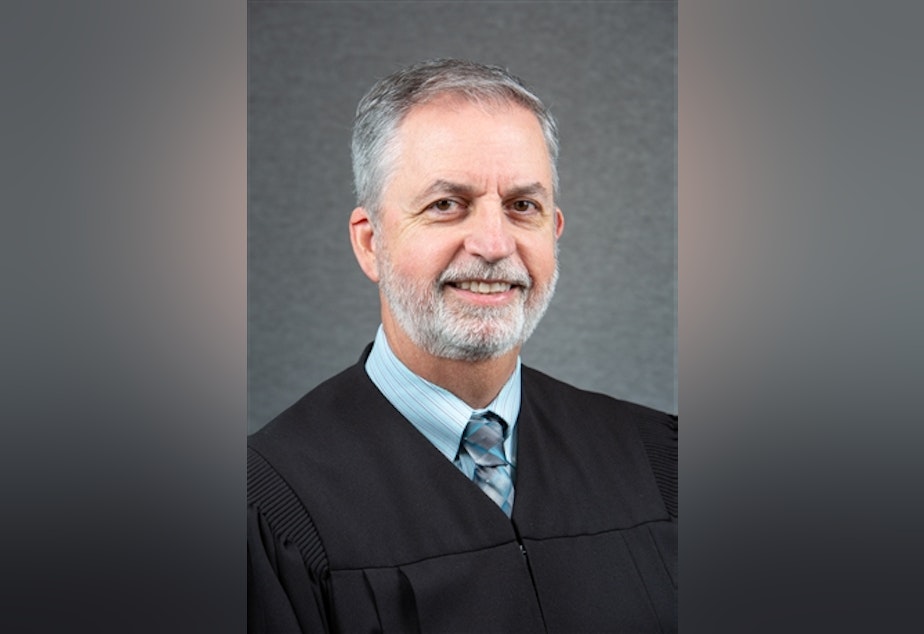Seattle judge refuses to step aside. ‘Correct your errors,’ he tells critics

A Seattle judge accused of judicial misconduct by the city's top prosecutor and King County's head of public defense says the statements made by his accusers are false.
On Wednesday, Seattle City Attorney Pete Holmes and King County's director of the Department of Public Defense, Anita Khandelwal, sent a letter to Seattle Municipal Court Presiding Judge Ed McKenna asking him to step aside from his role.
The letter alleged several incidents of judicial misconduct, including urging prosecutors for longer sentences and inviting a TV camera into court before handing down a predetermined sentence.
In response to the letter, McKenna issued a letter of his own on Thursday.
"I am declining your suggestion to step aside as Seattle Municipal Court's Presiding Judge," he wrote.
Both the city attorney and chief public defender said their departments would refuse to attend bench/bar meetings so long as McKenna remained presiding judge.
Sponsored
"The doors of our court remain open for you to attend Bench/Bar meetings and I hope you will reconsider your decision not to attend," McKenna wrote.
McKenna further denied the allegations of judicial misconduct made against him by both Holmes and Khandelwal.
He denied making a statement at a Downtown Seattle Association breakfast that he felt "bound to follow prosecutors' recommendations 99 percent of the time," as Holmes' and Khandelwal's letter claimed.
Sponsored
McKenna also denied inviting a KOMO producer and a local activist into his courtroom before handing down an extraordinary sentence.
"I frequently invite members of the public to visit our courts to see how our systsem actually works," McKenna wrote. "I categorically deny your allegations that I have violated the Canons of Judicial Conduct by initating invitations to my court and by pre-determining a sentence."
He continued: "Both individuals you reference have publicly denied any invitation on my part to observe the case or any form of sentencing collusion as you infer."
McKenna did not respond, however, to the allegation that he had encouraged prosecutors to ask for longer sentences so he would not look like "a bad guy" in handing down harsher sentences.
"With respect to any other allegations in your letter, the specifics are too vague for a detailed reply," McKenna wrote. "However, if you wish to provide me with information on hearings or trials that my statements have interfered with, I will certainly review the matters and respond appropriately."
Holmes and Khandelwal said in a statement that they were not "assuaged" by Judge McKenna's response.
“He doesn’t dispute pressuring the prosecutor to seek harsher sentences so that he would not look like the ‘bad guy’ when he chooses to exercise his judicial discretion," Holmes and Khandelwal said. "He doesn’t dispute making a spectacle of Mr. Calderon’s sentencing. We remain deeply concerned and are evaluating our options.”
Nevertheless, McKenna signed off his letter with an admonishment of his own. "May I also remind each of you of your ethical obligations to maintain the integrity of your profession," he wrote.
He cited American Bar Association rules that prohibit lawyers from making statements that they know "to be false or with reckless disregard as to [their] truth or falsity concerning the qualifications, integrity or record of a judge."




